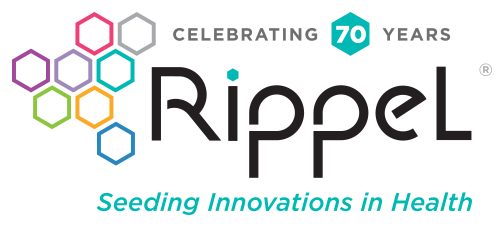Amplifying Stewardship Together

Tracking Poll for Stewards of Well-Being
Explore findings from our recently concluded bi-monthly poll that surfaced perspectives from a diverse circle of stewards about navigating system change during the COVID-19 pandemic.
There is a growing group of people and organizations who understand the need for action that is grounded in what we are calling stewardship—action that enables all people to prosper and reach their full potential. We call these people and organizations stewards.
Every steward has an area of focus as it relates to improving well-being. Each of us has carved out our role in these respective areas, making up part of an ecosystem. Rippel’s is health. Other stewards focus on democracy, equity, the environment, placemaking, the economy, education, or some combination.
We’ve done a lot of hard work, and we’ve had many breakthroughs. Yet despite our significant investments in time and money, we haven’t made enough progress
toward well-being in the United States. A lot of us have been reflecting and many are asking: what can we do differently?

Stewards are people or organizations that are developing their abilities to:
- Take responsibility for forming working relationships with others to transform well-being across a region.
- Serve as natural boundary spanners because they are informed by place-based, interdisciplinary, multisector, and multicultural perspectives.
- Understand that purpose must be larger than oneself and one’s organization, power must be built and distributed with others, and wealth must be invested to create long-term value as well as address short-term urgent needs.

The BIG Questions
How can we acknowledge our limitations, amplify our strengths, and expand our horizons?
Could we better achieve our goals if we work more cohesively and with a greater level of accountability to one another?
They open us up to other important questions, which we are also working to clarify through the project:
- How can we avoid pursuing narrow solutions when we know that barriers to well-being are complex and often can’t be “solved” by one sector or organization alone?
- How do we resist “quick fix” temptations when we know success depends on taking a long-term approach to problem-solving?
- How do we collaborate in ways that include all the people, organizations, and ideas that would strengthen our practice? In ways that recognize we can humbly learn from some marginalized cultures that have been encouraging us to work more cooperatively all along?
- How do we recognize one another’s strengths and see the potential of what we could do with greater alignment instead of magnifying our differences?
- How do we stop writing off those who might one day be effective stewards by wrongly assuming their intentions?
Amplifying Stewardship Together is about working as a group to openly learn from our independent and collective successes and failures, and seeing our differences as assets, so we can adapt our thinking and practices for a more inclusive, cohesive, and effective future. Because we work in such a complex and massive ecosystem that makes up well-being in the United States, we don’t assume it’s possible, or helpful, to create a giant infrastructure and set of processes to help us all work together. But we can lift up shared principles and practices to use as we each go about our own area of focus.
When we amplify these shared principles and practices in our daily work, we will naturally set the conditions that steward well-being across the country. Through this commitment we will create a shared identity and thus the opportunity to claim broader scope and power as part of a visible movement that is stewarding equitable ecosystems for well-being.
Getting Started
Who’s Involved
ReThink Health is working with leaders who act as stewards.
They are:
- A mix of local and national leaders
- Working in different domains affecting regional well-being: health, economy, environment, democracy, placemaking, education, and more
- Well-networked individuals working in well-networked organizations
- Successful for different reasons, so they can learn from one another’s strengths
- Diverse in race, ethnicity, gender, and age
Since our work is interdependent (whether or not we recognize it as such), we must show up in the world with greater context and understanding about what “stewardship” is today—who we are, what we are doing individually and together, what is at stake, and for whom.
Our activities in Amplifying Stewardship Together will focus on learning, adapting, and amplifying stewardship principles and practices so we can strengthen the foundation from which leaders can continue their efforts to steward well-being.
Learning
Our efforts must be grounded in reality (as opposed to our hunches) about what amplifies and weakens stewardship of well-being. We’ll conduct two nationwide studies to (1) examine long-term, nationwide trends that affect stewardship, and (2) learn the extent to which stewardship mindsets and practices have spread and are aligned in regions across the United States.
Adapting
We must adapt based on what we learn together. We’ll convene to deepen our stewardship practice by understanding and confronting the dominant patterns of thinking and sticky issues that hold us back in our efforts.
Amplifying
We must amplify stewardship principles and practices. Together we’ll shine a light on the broad scope of stewardship and the power we can have when each of us approaches our work with a shared set of principles and practices. We’ll share this common identity with other leaders—via their conferences, advisory groups, publications, and beyond—to invite them to work more cohesively and with greater levels of accountability to others who share their goals.


